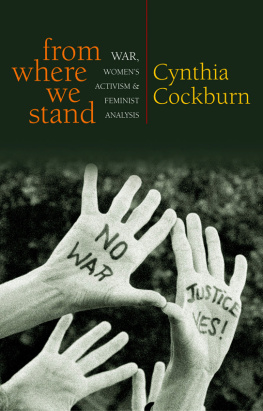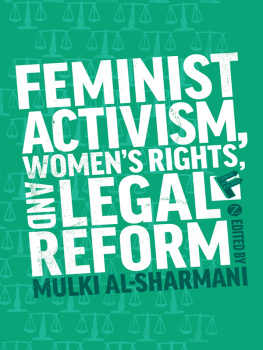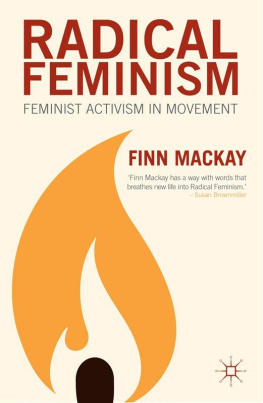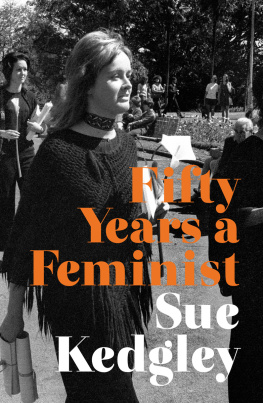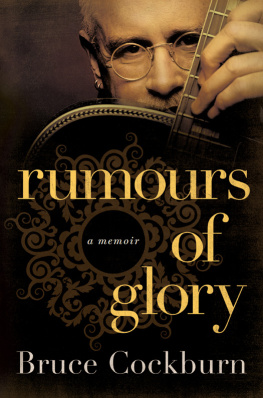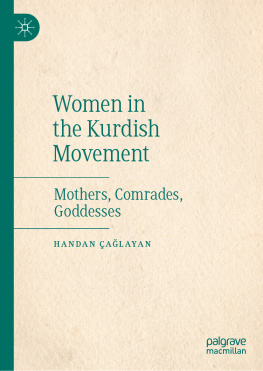About the author
Cynthia Cockburn, a feminist researcher and writer, lives in London where she is Visiting Professor in the Department of Sociology at City University and active in the international antimilitarist network Women in Black. She is known for writings based on empirical social research, and for an approach that grounds theory in the practice of labour or political action.
She has contributed, over a quarter of a century, to the literature on gender and technology, labour process and trade unionism, and transformative change in and through organizations. Her books include The Local State (Pluto Press 1977), Brothers (Pluto Press 1983), The Machinery of Dominance (Pluto Press 1985), In the Way of Women (Macmillan 1991) and Gender and Technology in the Making (with Susan Ormrod, Sage Publications 1993).
Since 1995 her research has focused on gender in armed conflict and peace processes, particularly in Northern Ireland, Bosnia-Herzegovina, Israel/Palestine and Cyprus. Her most recent books are The Space Between Us: Negotiating Gender and National Identities in Conflict ().
About the book
Why do so many women organize against militarism and war? And why, very often, do they choose to do so in women-only groups? This original study, the product of 80,000 miles of travel by the author over a two-year period, examines womens activism against wars as far apart as Sierra Leone, Colombia and India. It shows women on different sides of conflicts in the former Yugoslavia and Israel, refusing racism, enmity and collective guilt, working together for peace with justice. It describes transnational networks of women opposing US and Western European militarism and the so-called war on terror and its accompanying racism.
Women are often motivated by adverse experiences in the male-dominated anti-war movements, preferring to choose different methods of protest and remain in control of their own actions. But like the mainstream movements, womens groups differ. They debate pacifism must justice come before peace? They differ on nationalism, some condemning it as a cause of war, others seeing it as a legitimate source of identity. Yet despite womens varied positionalities and perspectives on war, a coherent feminism emerges in this transnational campaigning, and it suggests to both theory and activism a radical analytical shift: we cannot understand war, nor can we effectively campaign against it, without reference to gender power and gendered violence.
Cynthia Cockburn
From where we stand: war, womens activism and feminist analysis
Zed Books
LONDON NEW YORK
From where we stand: war, womens activism and feminist analysis was first published in 2007 by Zed Books Ltd, 7 Cynthia Street, London N1 9JF, UK and Room 400, 175 Fifth Avenue, New York, NY 10010, USA
This ebook edition was first published in 2013
Copyright Cynthia Cockburn, 2007
The right of Cynthia Cockburn to be identified as the author of this work has been asserted by her in accordance with the Copyright, Designs and Patents Act, 1988.
Photography by Cynthia Cockburn
Cover designed by Andrew Corbett
Set in Sabon and Gill Sans Heavy by Ewan Smith, London
All rights reserved
No part of this publication may be reproduced, stored in a retrieval system or transmitted, in any form or by any means, electronic or otherwise, without the prior permission of the publisher.
A catalogue record for this book is available from the British Library.
US CIP data are available from the Library of Congress.
ISBN: 978-1-84813-678-6
Contents
Acknowledgements
The research on which this book is based would not have been possible without support from six generous funding organizations. The most substantial grant came from the Joseph Rowntree Charitable Trust, and I would like to thank the trustees, and Nick Perks, the assistant secretary who fostered my project, very warmly for their support. To my surprise and delight I received a generous grant from the French foundation Un Monde pour Tous, through the friendly agency of Patrick Lescure. As in the past, the Network for Social Change trustingly backed my project, as did the Ian Mactaggart Trust, the Lipman-Miliband Trust and the Maypole Fund. My deep appreciation to all of you, and to City University London for furnishing me with an academic home for going on twenty-seven years.
This book is founded on the life experiences of countless women, submerged in war, surviving war, observing and protesting against war. Those experiences were conveyed to me, relived, analysed and theorized, in the words of more than 250 women in fifteen countries. You allowed me to interview you, or joined me in conversations, or sent me emails. Scarcely a word could have been written without you. If theres value in this book its entirely the product of your love and labour. Its shortcomings are down to me. All of you besides gave me a heartening welcome and eased my way on long journeys. In naming you below, I want to thank you from the bottom of my heart. You are all valued friends, to each other, to myriad other women in our many and complex networks, and especially cherished by me. Thank you!
Before I start in on the long list, however, let me say first that I owe to the following shorter list special gratitude for welcoming me to their homes and continuing my education over breakfast, tea and supper: Marie-Franoise Stewart-Ebel, Indira Kajosevi, Diane Cardin-Kamleiter, Joan Acker, Ann Jencks-Guy, Carme Alemany Gomez, Carmen Magalln Portols, Mara Vercher, Marta Brancas, Vahida Nainar, Abha Bhaiya, Elisabetta Donini, Charlotte Browne, Mariarosa Guandalini, Anna Zoli, Patricia Tough, Lily Traubmann and Gila Svirsky. A million thanks it made all the difference.
The following acknowledgements I have ordered in the sequence of visits in my itinerary.
In Belgium My very first interviews were in Belgium, early in 2004, where I gathered information from Edith Rubinstein, Foutoula Ioannidis and Dominique Dauby, active in Femmes en Noir groups in Brussels and Lige; Lieve Snelling and Ria Convents among women of Vrouwen in T Zwart in Leuven; and Fanny Filosof and Florence X,1 among women of the distinctive Collectif Femmes en Noir. Edith Rubinstein also helped me with translation from English to French.
In Turkey I next went to Turkey, on the invitation of Sabanci University, and was guided throughout this visit, and before and since, by activist-thinker-writer-teacher Aye Gl Altinay to whom I owe a special debt of gratitude. She introduced me to Nadire Mater and her inspiring work, and to others in their circle of friends in Istanbul. Publishers Iletiim have produced two of my books in Turkish translation. I am specially indebted to editors Tansel Demirel and Asena Gnal, conversations with whom also helped this present work. I learned about Winpeace from Gnl Diner, Nur Bekata Mardin and Zlal Kili and had interesting conversations with Banu Aikdeniz, Zeynep Kutluata and other women of BKAK and the Feminist Womens Circle in Istanbul. You will see that I gained a lot from meeting with Pinar Selek, Yeim Baaran and other women of Amargi in Istanbul. I had a memorable visit to Kurdish South-East Turkey where Aye introduced me to Nebahat Akko and her colleagues in the womens association Ka-Mer in Diyarbakir, and associated womens centres in Mardin and Kiziltepe. Hilal Demir and Ugur Yorulmaz, antimilitarist activists in Izmir, kept me in touch with their bold activities by e-mail.
In the USA My several weeks in the USA in the early summer of 2004 focused mainly on the international network Women in Black, which features in ).


